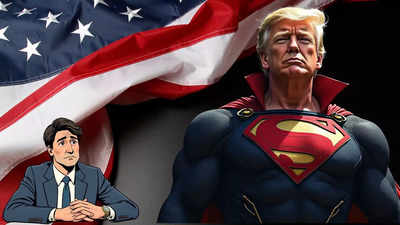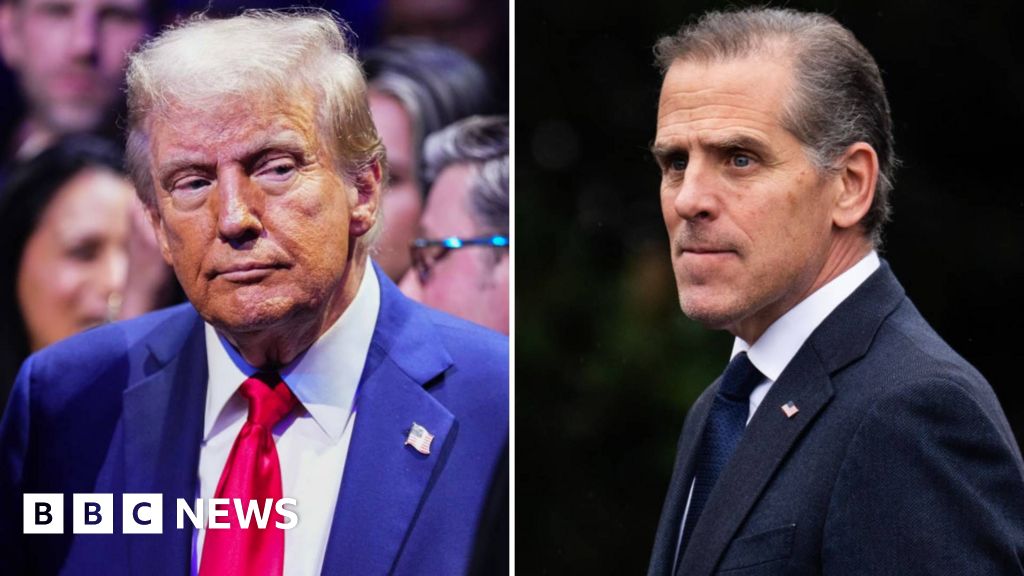
In How I Met Your Mother, Barney Stinson once teased Robin Scherbatsky, "Why does the US even let Canada be a country?" While playful in its intent, the quip reflects an underlying truth: Canada’s economic survival is deeply tied to its southern neighbor. A recent geopolitical “Barney moment” came when former US President Donald Trump suggested to Prime Minister Justin Trudeau that Canada might as well become the 51st state if tariffs were to devastate its economy. This offhand remark, though meant as a joke, sheds light on the intricate trade dynamics between the two nations—and just how dependent Canada is on the US.
Trudeau’s Flight to Mar-a-Lago: A Diplomatic Emergency
In 2018, when Trump proposed a 25% tariff on Canadian goods, the Canadian Prime Minister promptly boarded a plane to Florida to address the issue in person. The meeting, held at Trump’s Mar-a-Lago estate, was meant to avert economic disaster for Canada. What Trudeau likely didn’t expect was Trump’s candid observation: “If Canada can’t survive without ripping off the US, maybe it should just become our 51st state.”
The remark, reportedly accompanied by a suggestion to split Canada into two states—one liberal, one conservative—elicited nervous laughter from Trudeau and his team. But behind the levity lay a stark reality: Canada’s economic dependence on the US leaves it particularly vulnerable to shifts in American policy.
Canada’s Reliance on US Trade: The Numbers
Canada’s trade relationship with the United States isn’t just significant—it’s critical. The US is both Canada’s largest trading partner and its largest source of foreign investment.
- Total Trade: In 2022, trade between the two countries exceeded $960.9 billion, with the US accounting for 63.4% of Canada’s global trade.
- Exports: Canada exported $598 billion to the US, representing 75% of its total exports.
- Energy: Oil, natural gas, and electricity made up $199 billion, meeting over half of US energy imports.
- Automotive: Vehicles and parts totaled $58 billion, reflecting the integrated nature of the North American auto industry.
- Forestry and Machinery: Exports of timber, paper, and industrial machinery collectively amounted to $85 billion.
- Imports: Canada purchased $277 billion worth of goods from the US, accounting for nearly 50% of its total imports.
- Machinery and Electronics: The US supplied $38 billion in industrial and electronic equipment.
- Agriculture: Fresh produce, grains, and processed foods made up $35 billion.
The Depth of Interdependence
The relationship between the two nations extends beyond goods. It’s woven into the fabric of their economies:
- Energy Dependence: Canada provides 51% of US oil imports, along with electricity and natural gas essential for American consumption.
- Investment Flows: Canadian companies have invested $620 billion in the US, while American firms hold $550 billion in Canadian ventures.
- Jobs and Industry: Over 2 million Canadian jobs rely on trade with the US, while cross-border supply chains underpin key sectors like automotive manufacturing and agriculture.
Would Canada’s Economy Collapse Without the US?
The question of whether Canada could survive without US trade is complex. While a complete decoupling is unlikely, the sheer scale of reliance exposes Canada to significant risks:
- Economic Shock: A sudden disruption in US trade, such as steep tariffs or border restrictions, would severely impact industries like energy, automotive, and agriculture.
- Limited Alternatives: Efforts to diversify trade partners have been slow. For instance, Canada’s Comprehensive Economic and Trade Agreement (CETA) with the EU accounted for only 9% of Canada’s trade in 2022. Trade with Asia, while growing, remains modest at 15%.
- Geographic Realities: Proximity and existing infrastructure make the US Canada’s most practical and lucrative trade partner.
Why the US Would (Probably) Never Annex Canada
As much as Canada relies on the US, the notion of annexation—Trump’s 51st state quip—is far-fetched. The US benefits greatly from the current arrangement without taking on the burdens of governance, infrastructure, and cultural integration that annexation would entail. Incorporating a politically and culturally distinct country, with complexities like Quebec’s autonomy and Canada’s healthcare system, would be an administrative and financial nightmare.
Canada’s Economic Lifeline
Canada’s economic sovereignty is inextricably tied to its relationship with the United States. While the 51st state joke may have been made in jest, it underscores a real dependence that leaves Canada vulnerable to shifts in US policy. To safeguard its economy, Canada must accelerate efforts to diversify trade relationships and reduce its reliance on a single partner. At the same time, it’s clear the US values Canada’s role as a trade partner and energy provider. The relationship may be asymmetrical, but it’s mutually beneficial—and, like Barney and Robin, it’s a partnership that neither side can imagine living without.

 16 hours ago
4
16 hours ago
4










 English (US) ·
English (US) ·